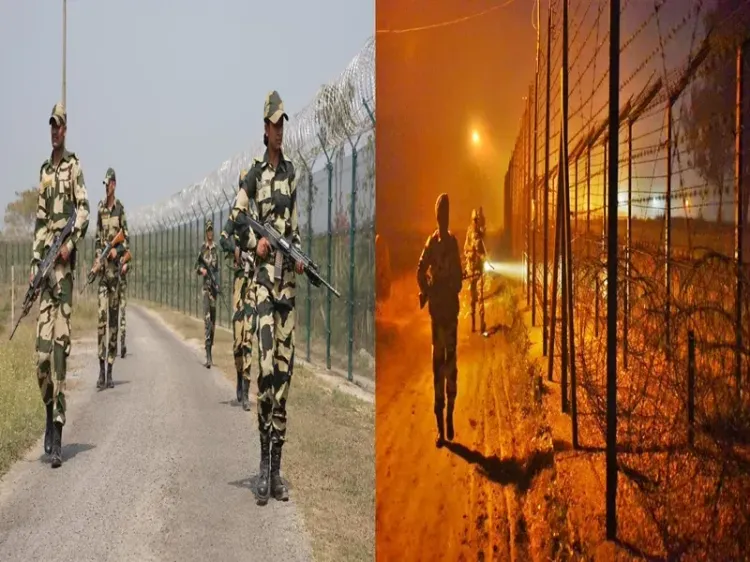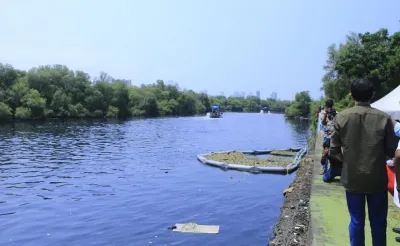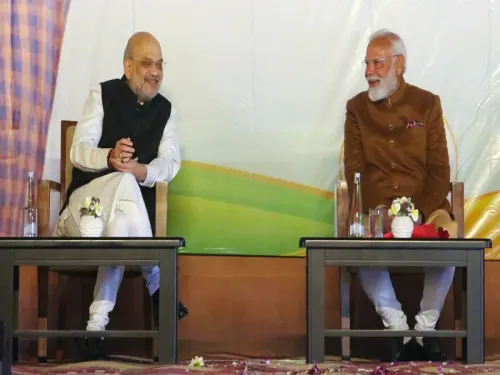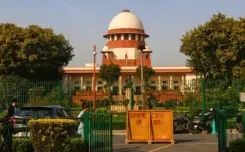BSF Officials Advocate Relocation of Zero-Line Villages as Home Minister Amit Shah Emphasizes Enhanced Vigilance

Kolkata, Nov 30 (NationPress) In the wake of Home Minister Amit Shah's call for heightened vigilance along the country's eastern frontier to avert infiltration, a group of senior officials from the Border Security Force (BSF) has highlighted that the unfenced segments of the border with Bangladesh and the existence of zero-line villages are substantial obstacles to effective border management.
Despite the central government's offers of compensation, there has been a noticeable lack of initiative from the government of West Bengal regarding the relocation of these zero-line villages.
"West Bengal encompasses a significant portion of the Indo-Bangladesh Border (IBB). Out of the total length of 4,096.7 km, West Bengal accounts for 2,216.7 km. However, only about 81 percent of this border has been fenced. While it is challenging to fence the riverine sections of the border, the presence of zero-line villages hampers fencing efforts in many areas. In West Bengal alone, there are approximately 360 zero-line villages housing over 70,000 residents. Most of these villages are situated in the districts of Malda, Murshidabad, and Cooch Behar," remarked one official.
According to a 1975 agreement with Bangladesh, fencing is permitted 150 yards behind the zero-line (the actual border). Although some smaller Indian villages were fenced off and left within this 150-yard zone, larger settlements could not be fenced, leading to substantial complications. Consequently, a significant number of troops must be stationed along the zero-line to thwart cross-border movement, especially during nighttime.
"Permanent structures cannot be established along the zero-line due to the agreement, which necessitates that the BSF depend on patrolling. Unfortunately, there is minimal assistance from the Border Guard Bangladesh (BGB) in curbing cross-border movement. This absence of support enables infiltrators to enter these villages, often aided by local touts, before advancing further into the Indian hinterland," another official noted.
A government official from West Bengal in Malda stated that multiple attempts to relocate these villages have faced considerable opposition from residents. Villagers have reportedly expressed their unwillingness to abandon their ancestral lands or fertile fields, even when adequate compensation is offered.
"We understand that some villagers may be involved in cross-border criminal activities and earn substantial incomes from such endeavors. However, we cannot forcibly evict them," the state government official explained.
Another BSF official mentioned that managing the riverine stretches of the IBB is significantly easier than overseeing the zero-line villages. Despite explicit orders against such actions, villagers deliberately cultivate tall crops and dense banana plantations near the zero-line to facilitate smuggling and the movement of infiltrators.
"This issue cannot be resolved unless the central and state governments collaborate and reach a consensus on addressing the situation. Given the current circumstances in Bangladesh, infiltration is likely to escalate. Robust measures are imperative," he concluded.










